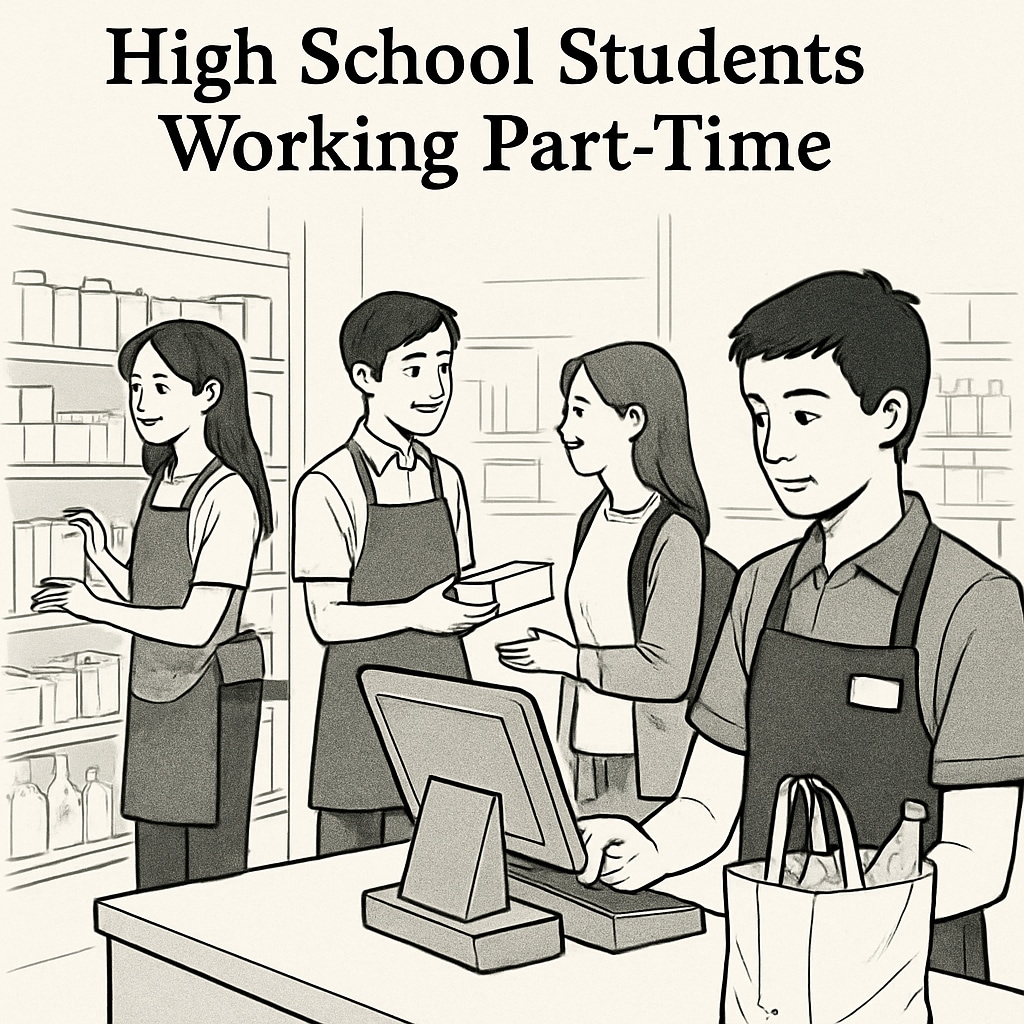For many families, the idea of high school students juggling part-time jobs with academic responsibilities raises important questions. Balancing work and education can offer teens valuable experiences, such as earning their own money, developing life skills, and fostering independence. However, it also comes with risks, including the potential to negatively impact their academic performance and emotional well-being. This article provides parents with actionable advice to help guide their teens in balancing work, school, and personal growth responsibly.
Benefits of Part-Time Jobs for High School Students
Part-time jobs can be a valuable experience for high school students, offering numerous benefits beyond just earning extra money. Here are some advantages:
- Financial Independence: Teens can learn how to manage their earnings, budget, and save, which are essential life skills.
- Time Management: Working alongside school responsibilities teaches students how to prioritize tasks and use their time effectively.
- Skill Development: Part-time jobs often help students build soft skills, such as teamwork, communication, and problem-solving.
- Career Exploration: Early exposure to work environments can help teens identify future career interests or paths.
For example, according to Britannica’s guide on jobs, part-time work during adolescence can foster maturity and responsibility, preparing teens for adulthood.

Risks and Challenges of Combining Work and Studies
While the benefits of part-time jobs are clear, there are also risks that parents should consider. Balancing work and school might lead to stress, fatigue, or lower academic performance if not managed well. Some potential challenges include:
- Impact on Grades: Working long hours can reduce the time available for homework and studying, leading to lower academic achievement.
- Social Isolation: Teens may miss out on extracurricular activities or spending time with friends and family due to busy schedules.
- Emotional Strain: Stress from trying to meet both work and school expectations can lead to burnout.
Parents should monitor their child’s workload carefully and look for signs of overcommitment, such as declining grades or increased anxiety. According to Wikipedia’s article on work-life balance, striking a healthy equilibrium is key to long-term success and well-being.

How Parents Can Help: Practical Decision-Making Framework
To ensure that part-time work benefits rather than harms their child, parents can use the following practical framework:
- Evaluate Academic Performance: Assess whether your teen is managing their current school workload successfully before adding a job.
- Set Clear Limits: Agree on a manageable number of work hours per week to avoid academic interference.
- Choose Suitable Jobs: Select jobs that align with your teen’s interests and skills or offer flexible schedules, like weekend shifts.
- Monitor Progress: Regularly check in with your teen to discuss their workload, grades, and emotional well-being.
- Encourage Open Communication: Keep the lines of communication open so your teen feels comfortable discussing challenges or adjustments.
Every family is different, and the decision to allow a high school student to work should depend on their individual circumstances, goals, and ability to manage time effectively.
Conclusion: Striking the Right Balance
Balancing part-time work and academics during high school can be both rewarding and challenging. Parents play a crucial role in helping their teens navigate this phase responsibly. By carefully evaluating the pros and cons, setting clear boundaries, and maintaining open communication, families can ensure the benefits of working outweigh the risks. Ultimately, the goal should be to empower teens to gain valuable skills and financial independence without compromising their academic success or personal well-being.
Helping teens balance work and education is not just about managing schedules—it’s about preparing them for life ahead. A thoughtful approach can lead to a more confident, capable, and well-rounded young adult.


